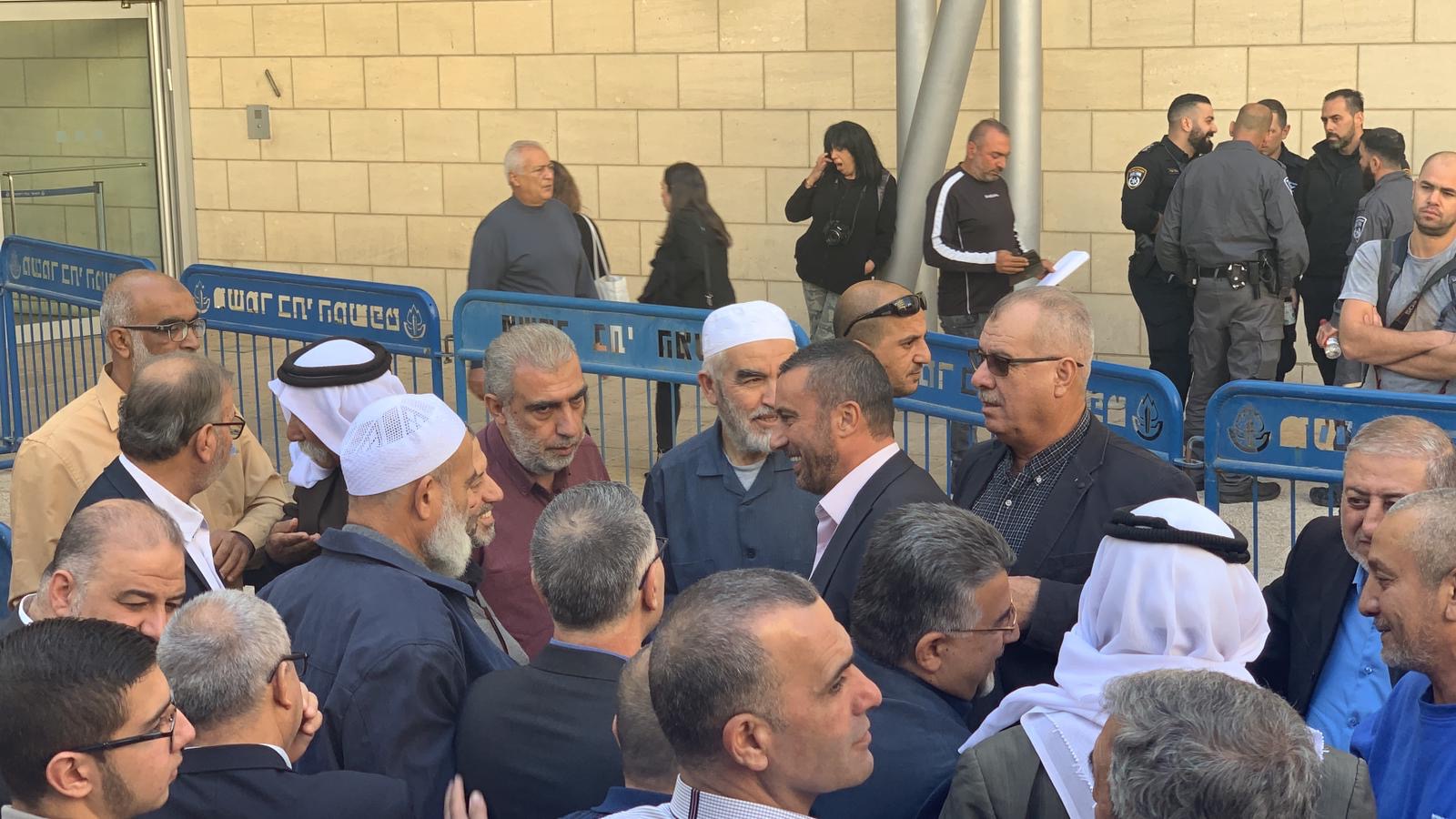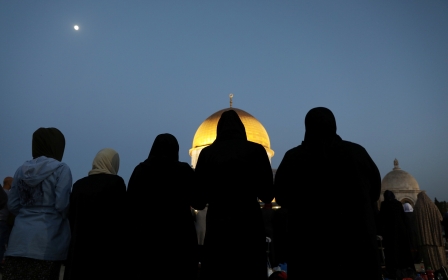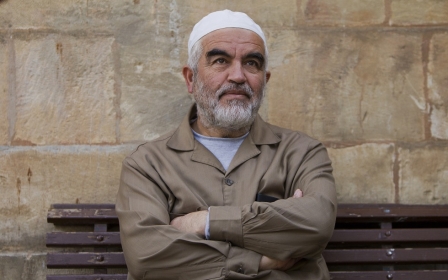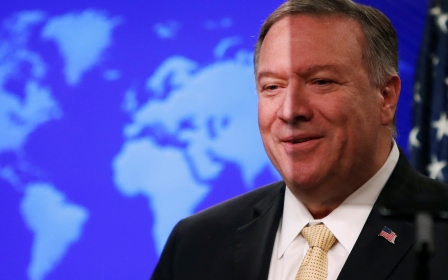Prominent Palestinian figure Raed Salah convicted of incitement to violence
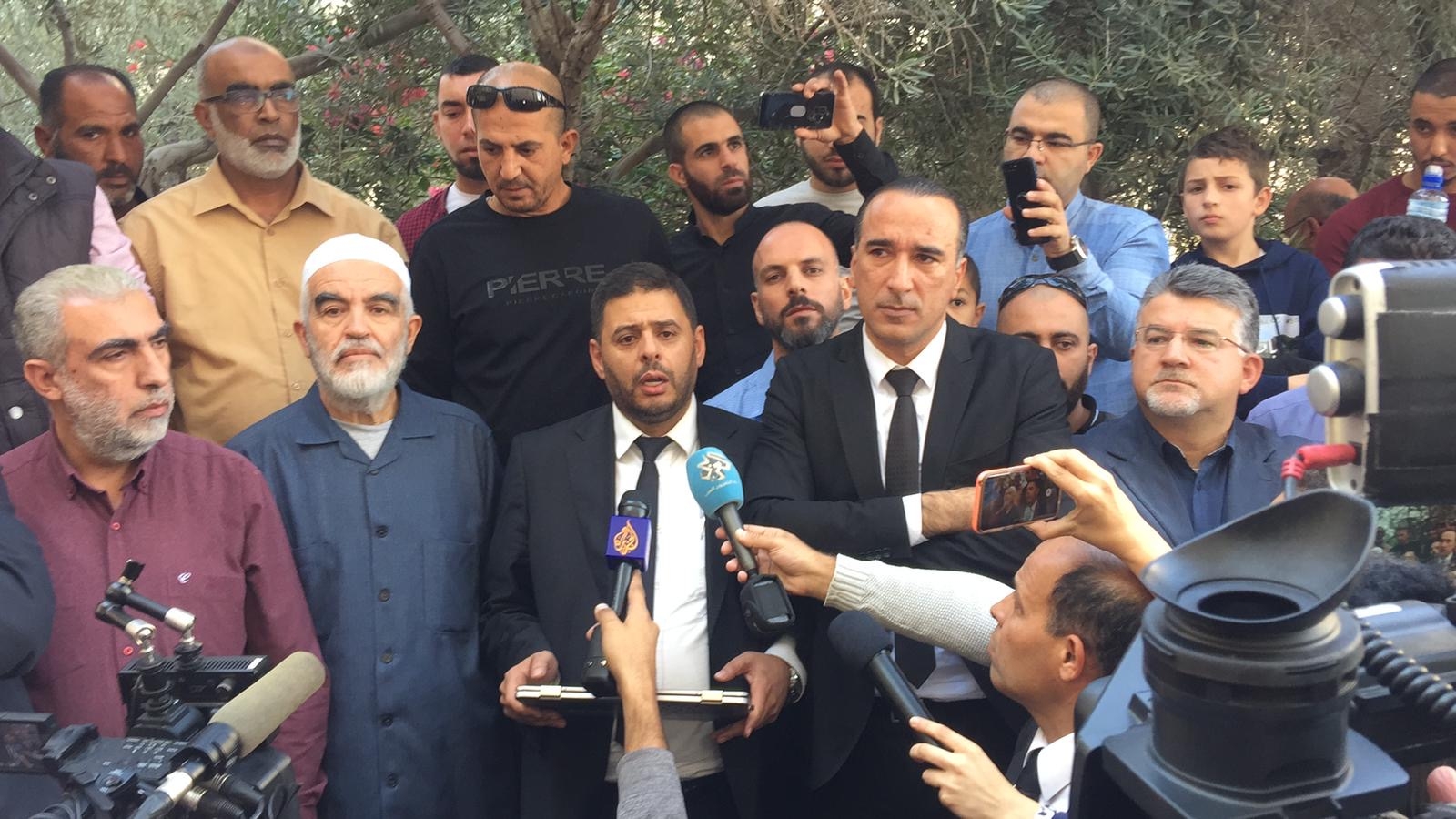
An Israeli court in Haifa has convicted Raed Salah, a prominent Palestinian political figure, of "incitement to terrorism" and supporting the outlawed Islamic Movement, which he headed.
The trial, which continued for an hour and a half, was attended by hundreds of Palestinians who came in buses from different cities and villages across Israel to stand in solidarity with Salah.
New MEE newsletter: Jerusalem Dispatch
Sign up to get the latest insights and analysis on Israel-Palestine, alongside Turkey Unpacked and other MEE newsletters
Israel's 1.9 million Palestinian citizens - descended from those who avoided the mass expulsion of Palestinians during Israel's creation in 1948 - comprise a fifth of the country's population.
"I have never witnessed in my career history such a racist decision," Salah’s lawyer, Khaled Zabarqa, told Middle East Eye. "This is a political decision to silence the Palestinian leadership and prevent it from taking any actions in response to Israeli violations.
"The Israeli establishment, which is represented by political and security leaders, has hindered the possibility of a fair trial," he added.
Salah, from the town of Umm al-Fahm, southeast of Haifa, was detained on 25 August 2017 and served 11 months in prison before he was moved to house arrest under tight restrictions. He was accused on 12 charges, including "inciting terror".
According to his lawyer, Salah is "banned from accessing tools of communication, including telephones, the internet and social media sites, speaking to the press and he must wear an electronic tag. Only his first- and second-degree relatives can visit him."
"It has been proven that the legal procedures were politicised and thus are being badly exploited… in order to politically prosecute Sheikh Raed," he said.
Inside the court hall and outside Haifa's Magistrate's Court, a large crowd of Palestinian activists and political leaders, including members of the Joint Arab List, gathered to stand in solidarity with Salah, and to call for the protection of Al-Aqsa Mosque.
"We came at around eight in the morning to attend the court session, but the [Israeli] intelligence and police had already prepared themselves days earlier to prevent us from entering the court," Abu Ali Shawahneh, an old Palestinian man from Galilee, told MEE.
Sheikh Al-Aqsa
Khadija Khweis, a Palestinian teacher from Jerusalem who had attended the court session in solidarity, said Salah is "a symbol of Al-Aqsa Mosque and of Jerusalem. He is not just one person; but rather a nation, a cause, a principle and an idea."
Salah "had always defended Al-Aqsa Mosque and Jerusalem. This is the least thing we can do to support him," she said.
Salah is affectionately known as Sheikh Al-Aqsa for his long years of activism to protect holy sites and Al-Aqsa, which he is banned from entering.
In a press conference outside the court, Mohammed Barakeh, a former Knesset member and the head of the Arab Committee said the trial was "a political prosecution" and "a tool to oppress and silence all Palestinians".
Since he was detained, Salah's case has seen 70 sessions in various Israeli courts, which will be followed by another court session on 18 December to decide on Salah's sentence, according to his lawyer.
"It is so touching to see these hundreds of people that came today from all around Palestine to support him," Salah's sister Nahida Mahajneh said.
"His case represents a more important issue; our rights to access our holy sites."
Salah is one of the most recognised and influential figures among the Palestinian population in Israel as well as in the territories under the Palestinian Authority and Gaza.
He headed the northern branch of the Islamic Movement from 1996 until it was banned in 2015.
He was the head of the Umm al-Fahm municipality for 12 years until 2001, and prior to that he was the columnist and editor of the Islamic Movement Township.
Middle East Eye delivers independent and unrivalled coverage and analysis of the Middle East, North Africa and beyond. To learn more about republishing this content and the associated fees, please fill out this form. More about MEE can be found here.



